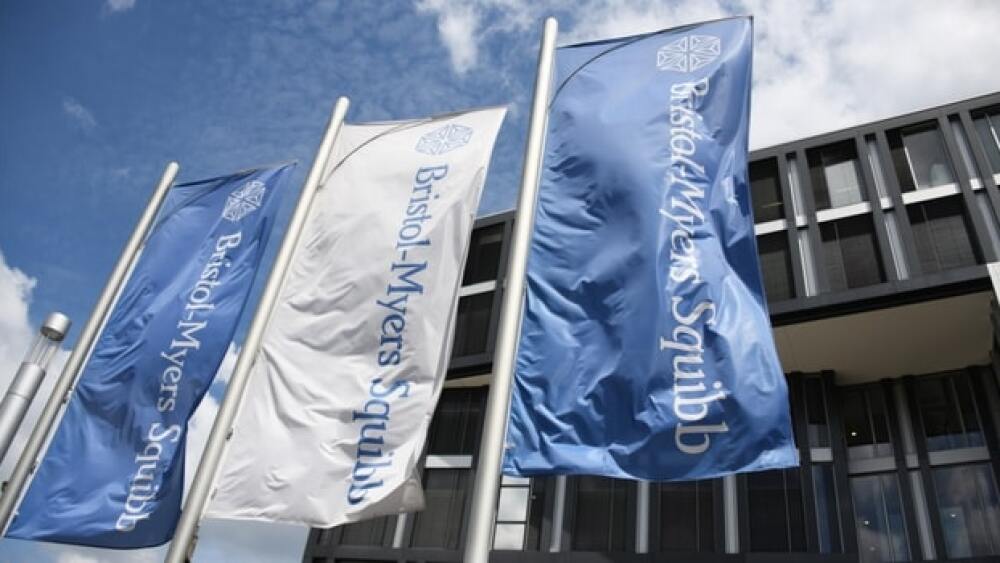Hundreds of presentations on oncology research are highlighted at the AACR Annual Meeting, which is running from April 7 to 13 in New Orleans.
Nitpicker/Shutterstock
Hundreds of presentations on oncology research are highlighted at the American Association for Cancer Research (AACR) Annual Meeting, which is running from April 7 to 13 in New Orleans. Here are just some of them.
BMS’s Opdivo Shows Promise Prior to Surgery in NSCLC
Bristol Myers Squibb shared positive results from its Phase III CheckMate -816 study, which is evaluating the effect of three Opdivo (nivolumab) cycles plus chemotherapy in event-free survival (EFS) among patients with resectable non-small cell lung cancer (NSCLC).
After a minimum follow-up period of 21 months, researchers found a significantly reduced risk of disease recurrence, progression or death by 37% when the drug was administered prior to surgery. In the patients who were given both Opdivo and chemotherapy, the median EFS was 31.6 months versus the 20.8 months in participants who received only chemotherapy.
It is still too early in the trial to call a conclusion, but the early overall survival results in the combination therapy compared to chemo alone are positive. Two years after the start of the study, 83% of the participants who received both regimens are still alive versus the 71% who received chemo alone. CheckMate -816 is the first Phase III trial of this nature to demonstrate significant findings in EFS and the other primary endpoint of pathologic complete response (pCR).
“Surgery is still the cornerstone of cure for patients with non-small cell lung cancer. The fact that neoadjuvant nivolumab with chemotherapy enabled shorter, less invasive and less extensive operations without increasing complications or adverse events is of tremendous importance to thoracic surgeons and their patients. These findings, combined with the improved survival outcomes, have the potential to completely change the way surgeons and oncologists collaborate in treating patients with resectable non-small cell lung cancer,” commented Jonathan Spicer, M.D., Ph.D., CheckMate -816 investigator, in a press release.
Repare Claims Validation of Platform in Solid Tumors
Repare Therapeutics shared promising updated information from its ongoing Phase I/II TREST clinical trial on the effectiveness of RP-3500 on solid tumors with specific synthetic-lethal genomic alterations, including those in the Ataxia-Telangiectasia mutated (ATM) kinase gene. RP-3500, an oral small molecule ATR inhibitor, demonstrated clinical benefit when given as monotherapy in patients with solid tumors that have various genotypes.
“Our comprehensive new dataset shows ATM loss of function as a compelling opportunity to offer durable clinical benefit to patients with genetically defined tumors. Additional results beyond ATM, such as the early efficacy seen in other genotypes involving BRCA1/2, SETD2 and RAD51C alterations, represent substantial validation of our STEP2 platform to identify other synthetic lethalities as we expand TRESR and develop our pipeline of synthetic lethal candidates,” noted Lloyd Segal, president and CEO of Repare in a statement.
Phase I results from Repare’s trial in 120 patients showed that the drug appears to be safe and well-tolerated. It also demonstrated clinical benefit across different types of tumors and genomic alterations. Positive results were observed in patients diagnosed with ovarian cancer, those who tumors harboring BRCA1 and BRCA2 genomic alterations and patients with ATM loss-of-function tumors among others.
Repare is set to present another study on April 12, titled “Detection of biallelic loss of DNA repair genes in formalin-fixed, paraffin-embedded (FFPE) tumor samples using a novel tumor-only sequencing panel with error correction.”
InventisBio KRAS G12C Inhibitor Shows Strong Disease Control
InventisBio showcased findings from its clinical trial on D-1553, its oral KRAS G12C inhibitor, for the first time in cancer patients. The company evaluated D-1153 in its Phase I international multi-center study on participants diagnosed with advanced or metastatic solid tumors with KRAS G12C mutations.
Based on the results from the 21 evaluable participants, scientists observed a 19% confirmed tumor objective response rate and an 85.7% disease control rate. Tumor response was seen in doses as low as 300 mg per day.
In a second trial, which assesses D-1553 on 59 patients with non-small cell lung cancer, an overall response rate of 40.4% and a disease control rate of 90.4% were observed.
“D-1553 is a key component of our clinical pipeline which covers therapeutic areas in cancer and metabolic disease. To our knowledge, this is the largest publicly reported population of patients that are treated with a KRAS G12C inhibitor developed completely in-house in China. We are committed to advancing this drug in more clinical studies to further assess its efficacy both as a single agent and in combination with other therapeutic agents in cancer patients and hope to make it available to them as a new treatment choice in the future,” commented Yaolin Wang, CEO of InventisBio.





